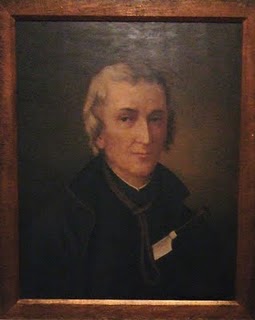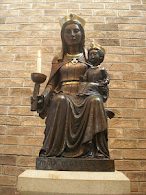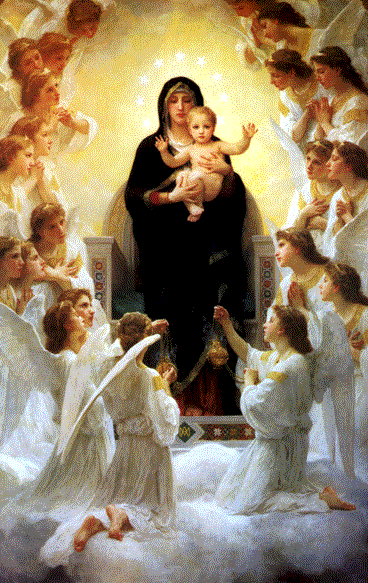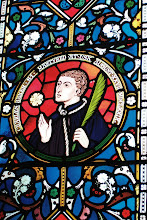This is Part 1 of a two part post about 'The Pot and Pineapple', the Gunters and St David Lewis.
 |
| THE POT AND PINEAPPLE, 37 CROSS STREET, ABERGAVENNY |
Abergavenny is as pretty as it is
historic. It is indeed a happy pastime
to meander along its streets and enjoy the intermingling of old and new –
modern shops housed in ancient buildings.
One such shop is the delightful little sweetshop, ‘The Pot and Pineapple’, on
Cross Street.
This recently opened establishment,
located at 37 Cross Street, is a traditional sweetshop with rows and rows of
jars, stuffed with glorious sweets, lining its shelves. It has the power to make one feel like a
child again, clutching a few pence and wondering which treat to purchase! Well, that is how I felt anyway.
‘The Pot and Pineapple’ is located in
one of the oldest buildings in Abergavenny, the ancient Gunter Mansion. It is very pleasing to note that the young
proprietor has maintained the Gunter connection in her choice of name, thereby
keeping alive an important part of Abergavenny history.
Several shops, numbers 37-40 Cross St,
now occupy the Gunter Mansion. This
historic building was originally constructed in the early years of the
seventeenth century and it was home to generations of the Gunter Family. Walter Gunter, who was born around 1717, was
the last of the Gunters to reside there.
JAMES
GUNTER
 |
| THE SIGN OUTSIDE THE POT AND PINEAPPLE |
James Gunter, Walter’s son, left Abergavenny and went to London. In 1777 James became a partner in a food
business named “The Pot and Pineapple” at 7-8 Berkeley Square. “The Pot and Pineapple” had been
established twenty years earlier as a confectioner’s shop by Domenico Negri. By 1799 James Gunter was sole proprietor and
the shop had become a chic Mayfair gathering place where the smart set would
stop to eat ices and sorbets. It must
have been quite a sight as the shop’s waiters raced back and forth across the
street delivering orders to ladies, who remained in their carriages, while the
gentlemen lounged nearby enjoying their confections. As well as ices and confections, Gunter’s was
known for its beautifully decorated cakes.
James Gunter’s son, Robert, took over the business on the death of his
father in 1819. In the mid 1930s, the
east side of Berkeley Square was demolished and Gunter’s moved to Curzon
Street. Gunter’s continued to delight
its customers until its closure in 1956.
THOMAS
GUNTER
It is now necessary to go back several
generations of Gunters to James Gunter’s ancestor, Thomas Gunter. Thomas Gunter was born about 1627 into the
Catholic branch of the Gunter Family.
Thomas, an attorney at law, lived in the mansion on Cross St which now
houses “The Pot and Pineapple” and other shops. He was a Catholic at a time in the history of
this country when Catholicism was outlawed.
Those who tenaciously clung to “Yr
Hen Ffydd”, “The Old Faith”, were
known as “recusants”. Recusants were subjected to harsh fines, imprisonment
and, sometimes, even death. Thomas
Gunter was a staunch Catholic and a fearless man. He is known to have said, “I
kept a priest during Oliver’s time of severity, and I shall keep one now”. He made good his promise!
Thomas had an attic room in his house
furnished as a Catholic Chapel and here the Catholics of Abergavenny would
assemble for Mass and to receive the Sacraments. Thomas kept two Jesuits, Fr Philip Evans and Fr
David Lewis, who celebrated Mass and conducted weddings, baptisms and funerals
in the chapel. A report referring to
this chapel said there was at Abergavenny “a public chapel for Papists adorned with
the marks of the Jesuits on the outside, and such numbers flocked there that a
hundred were seen to come out of it when not above forty attended the parish
(Established) church”. In his
deposition to the House of Commons in 1678, the vicious priest hunter, John
Arnold, stated that he had seen the “mark of the Jesuits” on the outside
of Gunter’s property. Mr Greenhaugh, the
Vicar of Abergavenny, said “there is a publick mark of the Jesuits on
the outside of the building, which is directly towards the Parish Church”.
ST
DAVID LEWIS
Fr David Lewis S J was either Thomas
Gunter’s uncle or his cousin. Most
historians come down in favour of uncle.
The youngest of nine children, David
Henry Lewis was born in Abergavenny in 1616. David’s mother, Margaret Pritchard, was a
Catholic and she raised eight of her children as Catholics. His father, Morgan Lewis, was a Protestant
and head of Abergavenny Grammar School. Morgan Lewis had his youngest son, David,
raised in the Established religion. As a
young man, David visited Paris and while there he was received into the
Catholic Church. In 1638 David entered
the English College in Rome to study for the priesthood. Several years after his ordination, he joined
the Jesuits. Fr David Lewis S J was sent
back to his homeland but, after a short time, he was recalled to Rome. About a year later Fr Lewis was sent again to
the English Mission. He returned to
Wales and for more than thirty years he tended to the needs of the beleaguered Catholics
in the border areas of Monmouthshire and Herefordshire. Based at Thomas Gunter’s, he ministered to
the Catholics of Abergavenny and the surrounding countryside.
.JPG) |
| THE PLAQUE ON THE OUTSIDE OF THE GUNTER MANSION, CROSS ST, ABERGAVENNY |
PLEASE CLICK HERE TO SEE PART 2.








.JPG)

.JPG)



.JPG)

Hi great reading yoour blog
ReplyDelete